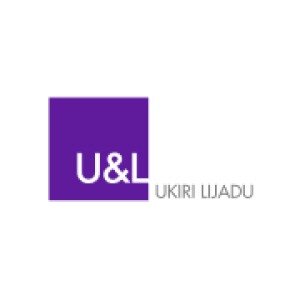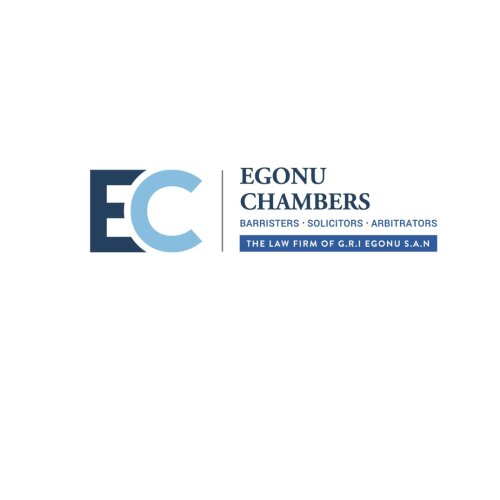Best Licensing Lawyers in Maitama
Share your needs with us, get contacted by law firms.
Free. Takes 2 min.
List of the best lawyers in Maitama, Nigeria
Nigeria Licensing Legal Articles
Browse our 1 legal article about Licensing in Nigeria written by expert lawyers.
- Requirements And Procedure for Acquiring Aviation Licence Under Nigerian Law by Foreign Airline Participation
- In Nigeria, the procedures for obtaining an aviation license under Nigerian law include adherence to the Aviation Act, which provides a legal foundation for the aviation industry. Globalization has caused a paradigm shift in Nigeria's aviation business, resulting in greater foreign airline participation and foreign direct investment, which has been... Read more →
About Licensing Law in Maitama, Nigeria
Licensing law in Maitama, Nigeria, involves the regulations and legal requirements for individuals and businesses to obtain permits or licenses to conduct certain activities. This can range from business operations, professional services, to the use of intellectual property. Maitama being an upscale area in Abuja, is subject to the broader Nigerian federal laws, as well as local regulations set out by the Federal Capital Territory Administration (FCTA).
Why You May Need a Lawyer
Many situations might necessitate the expertise of a lawyer in the field of licensing. If you are starting a new business or trying to ensure that your existing business complies with local and federal licensing requirements, a lawyer can guide you through the process. Furthermore, if you are involved in a dispute over licensing agreements, or if you're facing sanctions or penalties for licensing violations, a lawyer can help defend your case or negotiate a settlement. Intellectual property licensing, particularly in such a commercially active area, often requires legal oversight to protect your rights and interests.
Local Laws Overview
In Maitama, as with the rest of Abuja, licensing laws are primarily derived from federal legislation. However, local permits may also be necessary depending on the nature of your activities. Some of the key aspects to be aware of include the requirement of a business permit for commercial enterprises, regulatory compliance with industry-specific guidelines, adherence to building and zoning codes for physical establishments, and licensing related to health and safety. Laws surrounding the licensing of intellectual property like trademarks and copyrights would be governable under the regulations set by the Nigerian Copyright Commission (NCC) and the Trademarks, Patents And Designs Registry.
Frequently Asked Questions
How do I apply for a business license in Maitama?
To apply for a business license, you would typically need to submit necessary documentation to the Abuja Municipal Area Council (AMAC) or relevant federal bodies, pay any applicable fees, and pass any required inspections or evaluations.
What types of business activities require licenses in Nigeria?
Most commercial activities require some form of licensing in Nigeria. This includes retail, hospitality, consulting services, healthcare, and education. You should consult a lawyer for specific advice related to your industry.
Are there specific licenses required for food and beverage businesses?
Yes, food and beverage businesses require health and safety certifications, as well as other permits related to food handling and hygiene, which are regulated by health inspectors and local authorities.
Does licensing law cover online businesses in Maitama?
Licensing law does cover online businesses. Even if your business is online, appropriate licenses and permits may be required, especially if you have a physical premises or if your service directly involves the Nigerian public.
What should I do if my business is fined for operating without a proper license?
If your business is fined, it is advisable to consult a licensing lawyer immediately to explore your options, which could include challenging the fine, negotiating the penalty, or taking corrective measures.
Can I transfer my business license to another person in Maitama?
Business licenses are typically not transferable from person to person without prior approval from the issuing authority. Legal advice should be sought in any situation involving the transfer of a business or its licenses.
How long does it typically take to obtain a license?
The time frame for obtaining a license can vary significantly depending on the type of license and the complexity of the application. It could take anywhere from a few weeks to several months.
Do foreign investors need special licenses to operate in Maitama?
Foreign investors may be subject to additional licensing requirements and should seek legal guidance to ensure compliance with Nigerian investment regulations and the specific requirements of the FCTA.
What are the consequences of intellectual property infringement in Maitama?
Consequences can include fines, seizure of infringing goods, legal sanctions, and compulsory payment of damages to the intellectual property owner.
Who enforces licensing laws in Maitama, Nigeria?
Licensing laws are enforced by different agencies, including the AMAC, the NCC, and other industry-specific regulatory bodies. Non-compliance can lead to legal action by these agencies.
Additional Resources
For those in need of legal advice on licensing issues in Maitama, the Nigerian Bar Association offers resources to find legal professionals specializing in various fields. Governmental bodies such as the Corporate Affairs Commission (CAC), the Nigerian Copyright Commission (NCC), and the Trademarks, Patents And Designs Registry are crucial resources for business and intellectual property licensing respectively.
Next Steps
If you need legal assistance in licensing, your first step should be to consult with a licensed attorney who specializes in the area of law relevant to your needs. An attorney can help you navigate the application process, interpret the local laws, represent you in negotiations or disputes, and provide personalized legal advice. It's also recommended to familiarize yourself with the requirements specific to your industry beforehand to ensure a smoother consultation process.
Lawzana helps you find the best lawyers and law firms in Maitama through a curated and pre-screened list of qualified legal professionals. Our platform offers rankings and detailed profiles of attorneys and law firms, allowing you to compare based on practice areas, including Licensing, experience, and client feedback.
Each profile includes a description of the firm's areas of practice, client reviews, team members and partners, year of establishment, spoken languages, office locations, contact information, social media presence, and any published articles or resources. Most firms on our platform speak English and are experienced in both local and international legal matters.
Get a quote from top-rated law firms in Maitama, Nigeria — quickly, securely, and without unnecessary hassle.
Disclaimer:
The information provided on this page is for general informational purposes only and does not constitute legal advice. While we strive to ensure the accuracy and relevance of the content, legal information may change over time, and interpretations of the law can vary. You should always consult with a qualified legal professional for advice specific to your situation.
We disclaim all liability for actions taken or not taken based on the content of this page. If you believe any information is incorrect or outdated, please contact us, and we will review and update it where appropriate.









